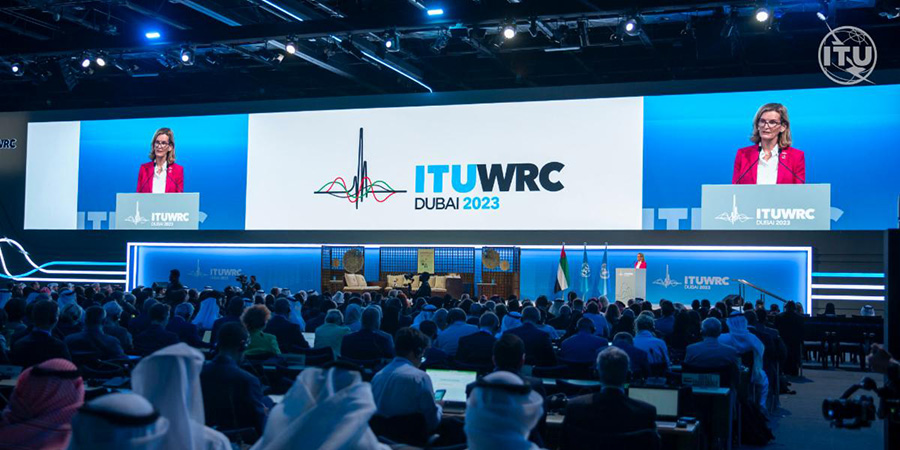Following the successful completion of the ITU Radiocommunication Assembly, the World Radiocommunication Conference 2023 (WRC-23) on November 20 brought governments together for negotiations on the allocation of radio-frequency spectrum.
WRC-23 will review and update the Radio Regulations, the international treaty governing the use of spectrum and geostationary and non-geostationary satellite orbits.
His Highness Sheikh Ahmed bin Mohammed bin Rashid Al Maktoum, Second Deputy Ruler of Dubai, attended the WRC-23 opening ceremony.
For the opening, United Nations Secretary-General António Guterres noted that the World Radiocommunication Conference “is a testament to the power of international cooperation in tackling global challenges."
Meanwhile, Doreen Bogdan-Martin, ITU Secretary-General, said, “We are at an inflection point in tech history, and radiocommunications are at the top of the global agenda. Equitably managed spectrum and the associated satellite orbits are among the best tools in our toolbox to make good on our commitment to build a digital future that works for everyone and for our planet."
H.E. Eng. Majed Sultan Al Mesmar, Director General of the UAE Telecommunications and Digital Government Regulatory Authority (TDRA), said, “With the broad horizons it brings in the fields of smart cities, digital economy, knowledge society, space and others, we are confident that this conference will achieve the results that meet the expectations and aspirations of our peoples."
H.E. Eng. Mohammed Al Ramsi, Deputy Director General for the Telecommunication Sector of TDRA, was elected as the chair of WRC-23. The conference is hosted by TDRA and will take place from November 20 to December 15.
Mario Maniewicz, Director of ITU's Radiocommunication Bureau, observed, “Newer innovative technologies will allow us to better monitor our changing planet and better connect communities and people everywhere: on land, at sea, in the air and in space.”
The WRC-23 Agenda Items Include:
- Identifying additional frequency bands for the continued development of International Mobile Telecommunications (IMT), including the use of high-altitude platform stations as IMT base stations for the universal deployment of wireless networks.
- Improvements to the international regulatory framework for geostationary orbit (GSO) and non-geostationary orbit (NGSO) satellites while promoting equitable access for all countries.
- Use of satellite technologies for broadband services to improve connectivity, particularly in remote areas.
- New spectrum to enhance radiocommunications in the aeronautical mobile service, including by satellite, and to facilitate the use of space research and Earth exploration-satellite services for climate monitoring, weather prediction and other scientific missions.
- The modernization of the Global Maritime Distress and Safety System (GMDSS).
- The regulatory framework for the use of earth stations in motion on board aircraft and ships for communication with GSO and NGSO satellites.
- The future of the ultra-high-frequency (UHF) broadcasting band, which has implications for television broadcasts, program-making and special events, as well as public protection and disaster relief.
- The Radio Regulations ensure that the use of the radio-frequency spectrum is rational, equitable, efficient and economical, all while aiming to prevent harmful interference between different radiocommunication services.
